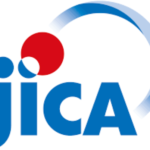By Hassan Zaggi
It is no more news that virtually all sectors of the Nigerian economy are confronted with one challenge or the other. Nigerians are currently in a tight situation in all spheres.
Majority of Nigerians are groaning and hoping for a lasting solution to the economic woes biting hard on them which has nearly brought ordinarily people to their knees.
The area of getting medicines for various ailments is worst hit. This is because without good health every other aspect of life will not be meaningful.
Since the past few months, the cost of medicines in Nigeria have skyrocketed. This is due to many reasons including unfavourable business environment which has led many pharmaceutical companies like GSK to leave the country.
The plunge in the value of the naira after the removal of currency controls in June last year also sent prices of new stocks rocketing.
Another contributing factor that led to the increase in the prices of the medicines is the fact that most drugs in Nigeria were imported while local makers relied on imports for the pharmaceutical ingredients to produce medicines.
As the former President of the Association of Industrial Pharmacists of Nigeria, Lolu Ojo, puts it “the cost of replacing drugs is one of the factors influencing the costs of drugs.” These factors have adversely affected all categories of medicines leaving most Nigerians to spend huge resources before getting their required medicines at any time.
As the Nigerian government is frantically finding ways to ameliorate the sufferings of Nigerians and reduce the cost drugs, the recent pronouncement by the federal government to issue Executive Order in order to lower the cost of the medicines has attracted the attention of most stakeholders in the health sector.
At its meeting on Wednesday, the Federal Executive Council (FEC) deliberated on the problems of our pharmaceutical companies and what is to be done to protect them via tax and excise duties reduction to make cheaper drugs available to our people.
The FEC concluded that an executive order is on the way to address the immediate problems of this segment of our industry and that the federal government will also sooner engage with the Manufacturers Association of Nigeria to discuss mitigating industry wide problems.
Responding to questions from State House Correspondents, the Minister of Health and Social Welfare. Prof. Muhammad Ali Pate, explained that the Executive Order aims at enabling local drug manufacturers to thrive, while ensuring fair pricing of essential medicines.
“Consistent with the president’s renewed hope agenda, which puts the human capital, health and social welfare of Nigerians at the center, today at the federal executive council, Mr. President took three far-reaching decisions relating to the health sector.
“The first is on the rising cost of pharmaceuticals, the hike in prices that we have in the pharmaceutical which is going beyond the reach of many Nigerians, life-saving commodities, devices like syringes and needles and the exit of major companies from our market.
“Those decisions also include the regulation of the sector to protect the health and well-being of humans and the third decision is regarding how we deal with the crisis of human resources in the health sector.
“Mr president, in his wisdom, at the end of last year, in October, approved an initiative to unlock the healthcare value-chain and appointed a coordinator for that.
“But we know that the price of pharmaceuticals have escalated and many entities have decided to withdraw and some of the local manufacturers in Nigeria are struggling.
“President’s intent is that we begin to take steps to enable the local manufacturers to survive, to thrive and to deliver the basic commodities that are key to saving their lives.
“And he directed that the attorney general of the federation work with us to come up with an executive order, which is the mechanism through which he will act, given the concern that he has that many Nigerians are suffering from the costs of pharmaceuticals, as well as other devices. That is the first important step and that should be coming very soon.”
This position of the federal government has, however, generated a lot of reactions from stakeholders in the health sector.
One of the stakeholders who preferred anonymity said: “When will my country stop being funny when it comes to problem-solving? And to think that Nigerian so-called academics are the ones advising Government in taking such lines? What does an Executive Order to reduce price of medicines look like? Will that stop the slide of the Naira? Will that make raw materials available? Will that ensure that we have electricity 24/7?
“Will an Executive order ensure transparency and accountability in government at National and sub-national levels (They say Health is a concurrent issue although I cannot see where that is written in our constitution) Countries that started at about the same time like Nigeria (e.g. Malaysia) solved their issue of medicines more than 20 years ago.
“All medicines in Malaysia were supplied by Pharmaniaga which was a PPP concern more than 20 years ago-with maximum accountability. Malaysia has attained over 95% in vaccine coverage 20 years ago-all issues internally tackled. As at 2007, supply chain for medicines in Malaysia was almost perfect with Health workers not having to sweat to have supplies as and when due.
“Have Executive Orders ever solved any problem in Nigeria? if so, please let us mention one. I have not given up on Nigeria but our Health System does not have direction. Not even now!!!
“Finally, why is that Nigerian ‘experts’ who appear to make waves outside Nigeria come back to Nigeria to join our adaptive thinking process that has never helped us?”
Other stakeholders, however, believe that even though the federal government has good intention for planning to toe that path, they insisted that the Nigerian Health System challenges are far bigger than the current stance of government.
According to them, there is a need for a holistic and home-grown approach, noting that Nigerians have all that it takes to solve the problems if they make up their minds to do it through the right leadership at the highest level.
They called for the urgent wholistic implementation of the National Health Act (NHA) which has been in existence for close to 10 years.
It is pertinent that the federal government critical look at all the available options, act promptly, in order to save Nigerians from the unbearable hardship they are currenting going through before getting medications for their various ailments.



